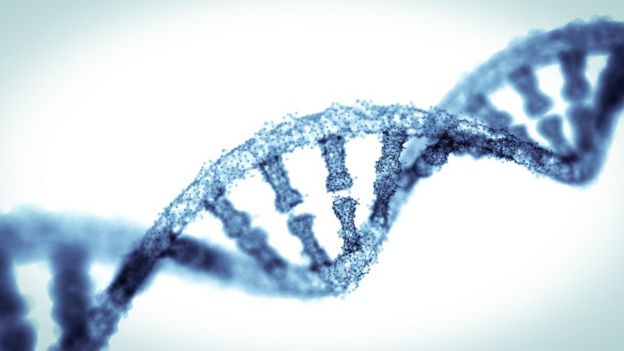What I read
In "Genes have a role in empathy, study says", Alex Therrien (2018) reported that scientists discovered genes that relate to empathy. They gathered participants' DNA and measured empathy score. In publication, they presented three main findings. First, participants with higher empathy score had at least 10% different genes. Second, women had higher empathy score. Lastly, genes differences in people with lower empathy correlated with higher risk of autism. In conclusion, they suggested that these findings are the first evidence that empathy might relate to genes and can be inherited.
___________________________________
My response
After reading this news, I was surprised and curious. I believed that empathy depends on experiences, how we were raised and who we lived with. To claim that genes have relate to empathy seems impossible to me. Surprisingly, they did thinking out of the box and that lead them to this extraordinary experiment.
However, when I think about several real life situations. This idea does not make sense! First, people's feelings can change over time. One of my friend felt a great empathy to the poor. But one day, I and my friend witness that poor turn out to be a fraud. After that, my friend is very sad and he never felt any empathy from that time. This example shows how empathy can be changed and it is the fact that genes do not change. Second, 10% difference in the sea of genes that can not specified is meaningless. Variations in human genes may not change the outcome. For example, 10 people have different gene sequences for their single protein A. But that protein A can function identically. So, connecting genes and empathy sounds impossible.
If I considered those empathetic genes as a risk factor, it will make a little bit more sense. People who have some set of genes prone to have higher probability to have higher empathy is sound right for me. This idea also supported by their finding of correlation between difference genes in empathy and other mental disorders. But In this way, my curiosity also ask how can they assimilate this finding. Just first imagine that they find the novel empathetic genes. Genome editing are possible and impending with the groundbreaking discovery of CRISPR-Cas9. I think we possibly can edit those felonies in jail to have more empathy and we will have more peaceful world to live.
As a matter of fact, this research need to be extended and I hope that someday they will find those novel genes.
___________________________________
My question
Do you think that finding empathy genes can be useful ?
___________________________________
Reference
- Therrien, A. (2018, March 12). Genes have a role in empathy, study says. BBC News. Retrieved from http://www.bbc.com/news/health-43343807

Pom, I have something to say. I have no intention to post the same news as yours. I prepared my writing yesterday and I started blogging around 9 pm. I can't get a new one done before midnight, so I posted what I prepared. Please understand me. I'm sorry if my post makes you feel bad.
ReplyDeletePlease don't worry. At least I can find someone who interested in the same kind of story! Although we choose the same article, we have different opinions and wrote it in the different way. I think this is not going to be a problem. Lastly, thank you for your candor in comment.
DeleteI don't think it's a big problem if there is some duplication. After this week, it will be easier to avoid because we will be blogging on different days.
DeleteAlthough it's good to have solid evidence for our beliefs, the news here did not surprise me. It has been known for a long time by animal breeders that not only physical things but also emotions are heritable, so I had always assumed that most human personality traits were at least to some extent genetically determined, just as intelligence and height are. Of course the genetic component of physical, mental and emotional characteristics that are part of our given identity also depend on the environment: if someone with the genes to be tall and handsome is starved of healthy food as a child, his body will not be able to express the genetic inheritance, and I'm sure the same applies to intelligence and to personality.
ReplyDeleteAs in Yok's, there are other interesting points that Pom raises in his response, so I'm looking forward to the responses of others in the class.
I was, for example, interested in Pom's idea about using CRISPR technology to edit the genes of criminals.
DeleteAnd I'm sure parents will be keen to use it to edit the genes of their children to design better babies that are smarter, stronger, nicer and so on. That sounds like a real revolution in human evolution is coming soon to a world near us, with the children of those who can't afford it left behind.
Thank you for your response.
DeleteI discussed the topic about using genes editing to design baby with my friend many years ago. It sounds frightened to me because people who can afford it will left people who can not behind, like you said. My friend responded in cold-heart voice that it will be just another natural selection process which is actually happened in subtle level that we might able to perceive. Later that we argued a lot on ethical issues.
I personally want to harness those finding to fight deadly disease more than transforming human toward ideology. As I'm writing this comment, I remind that someone said "Imperfection makes human perfect".